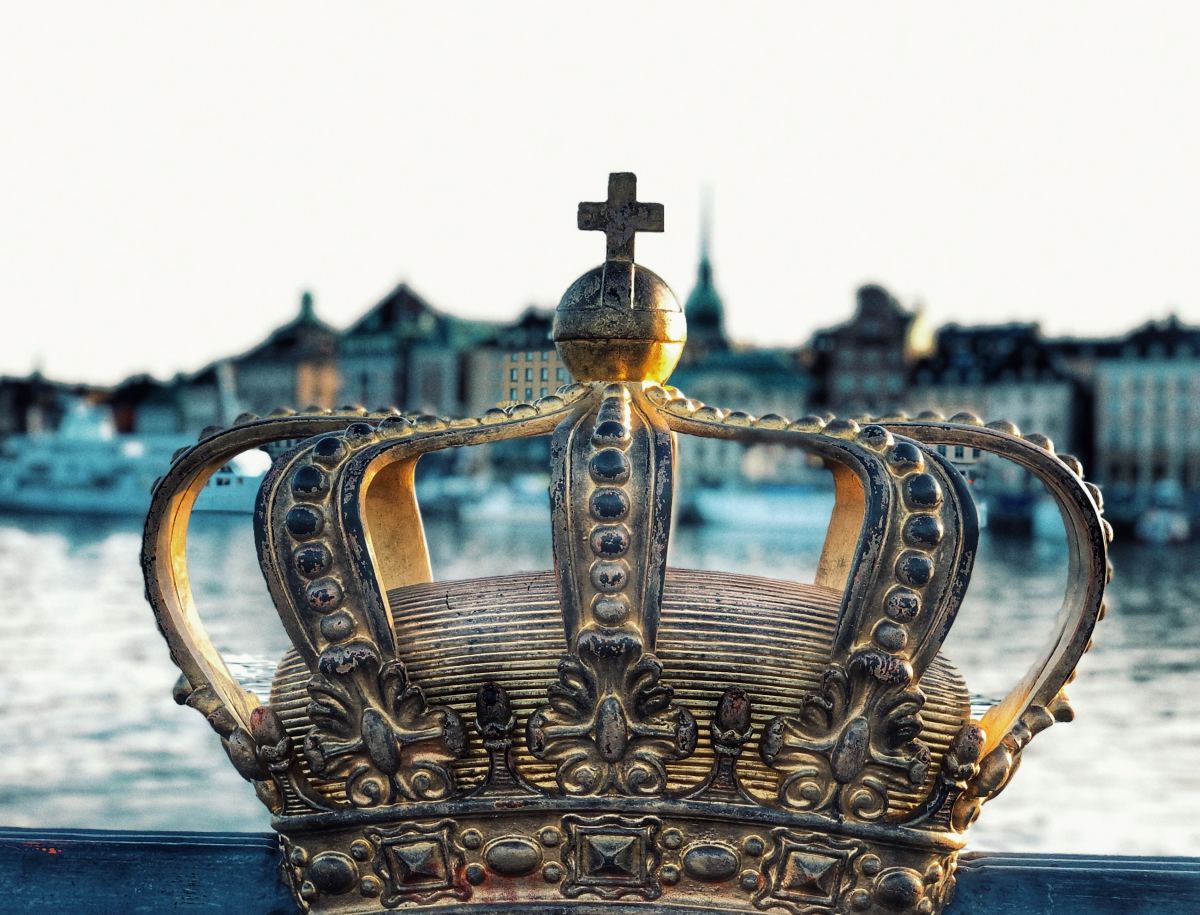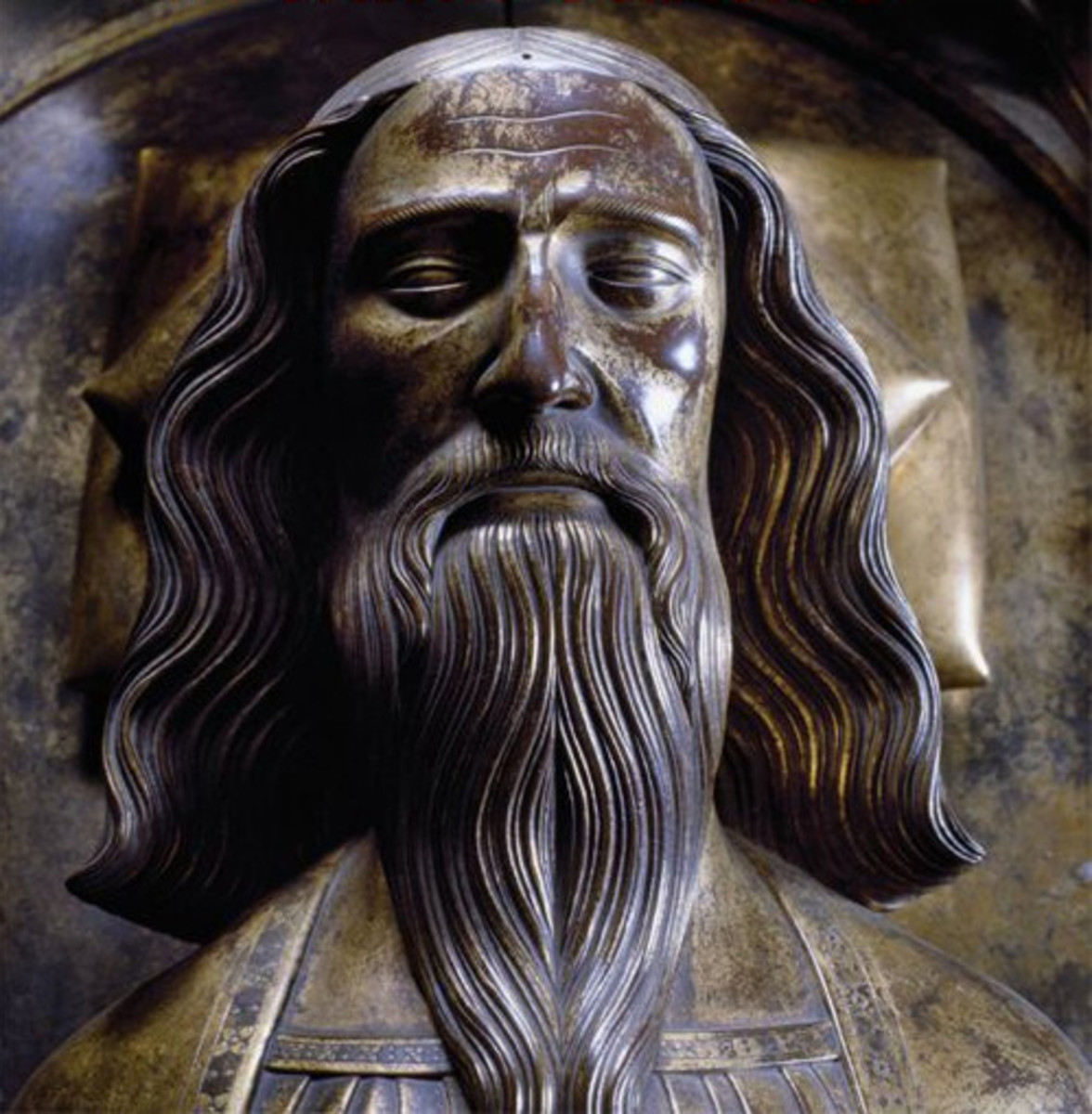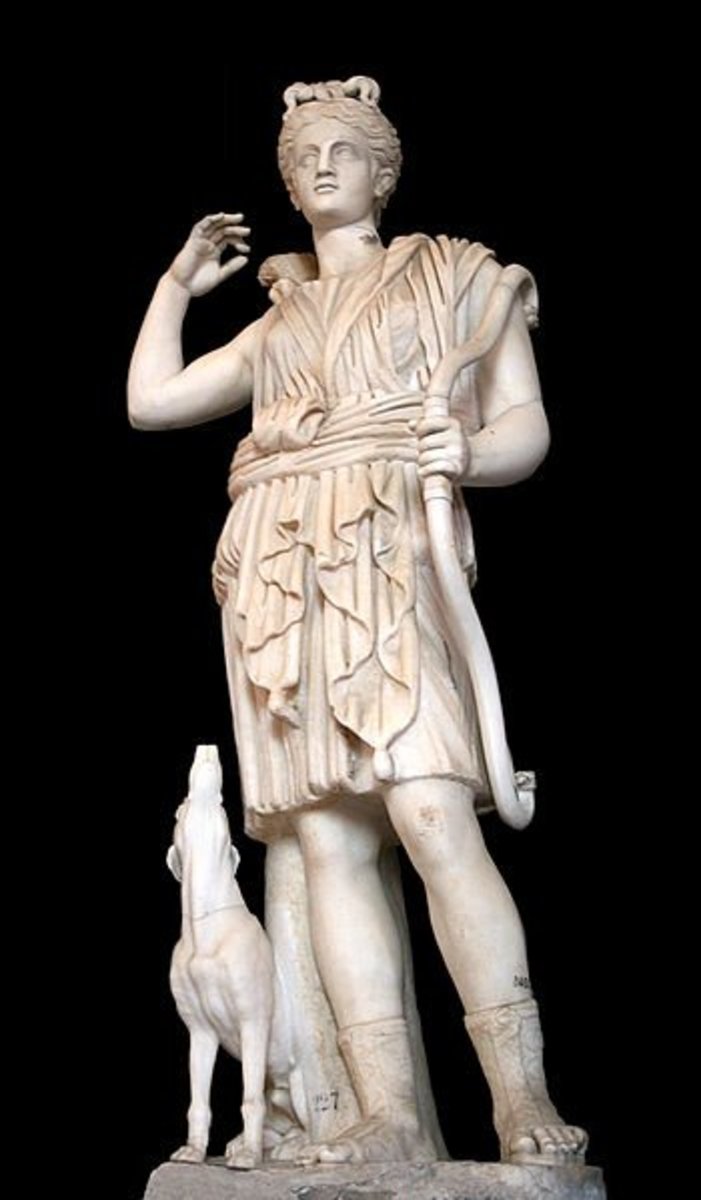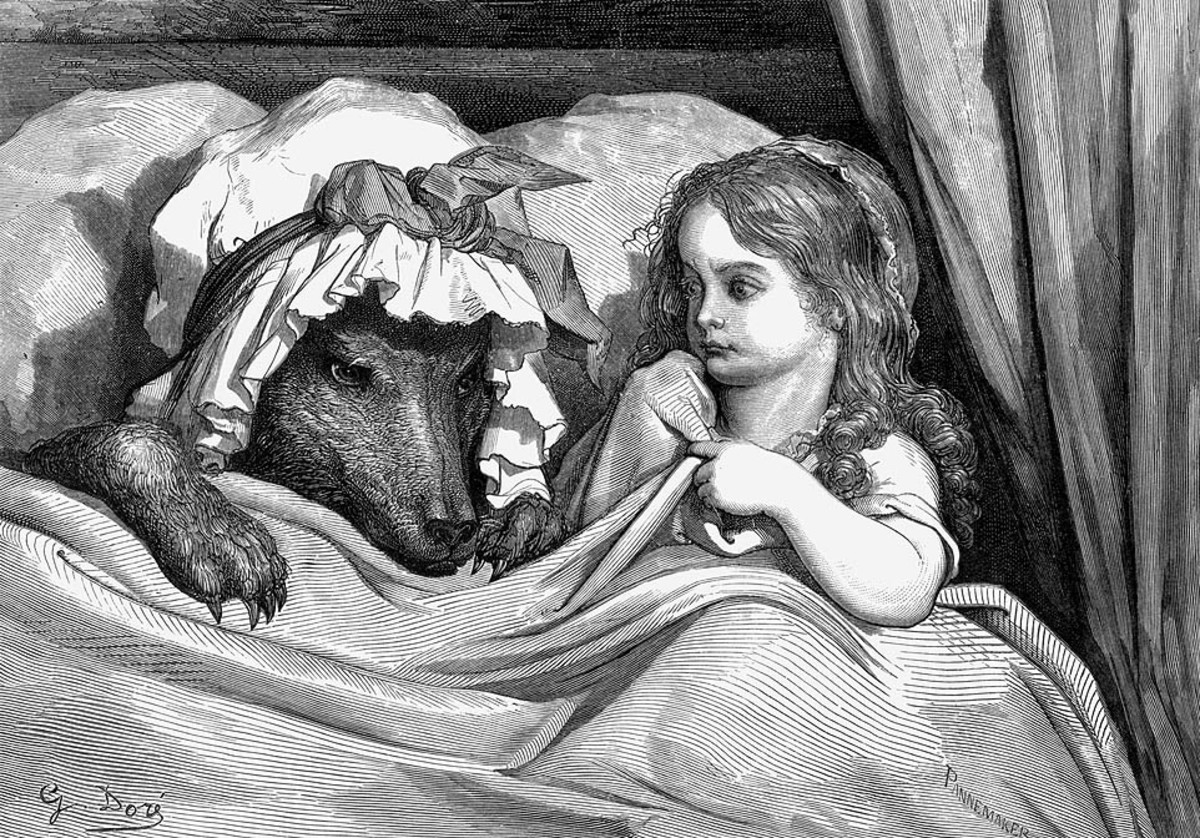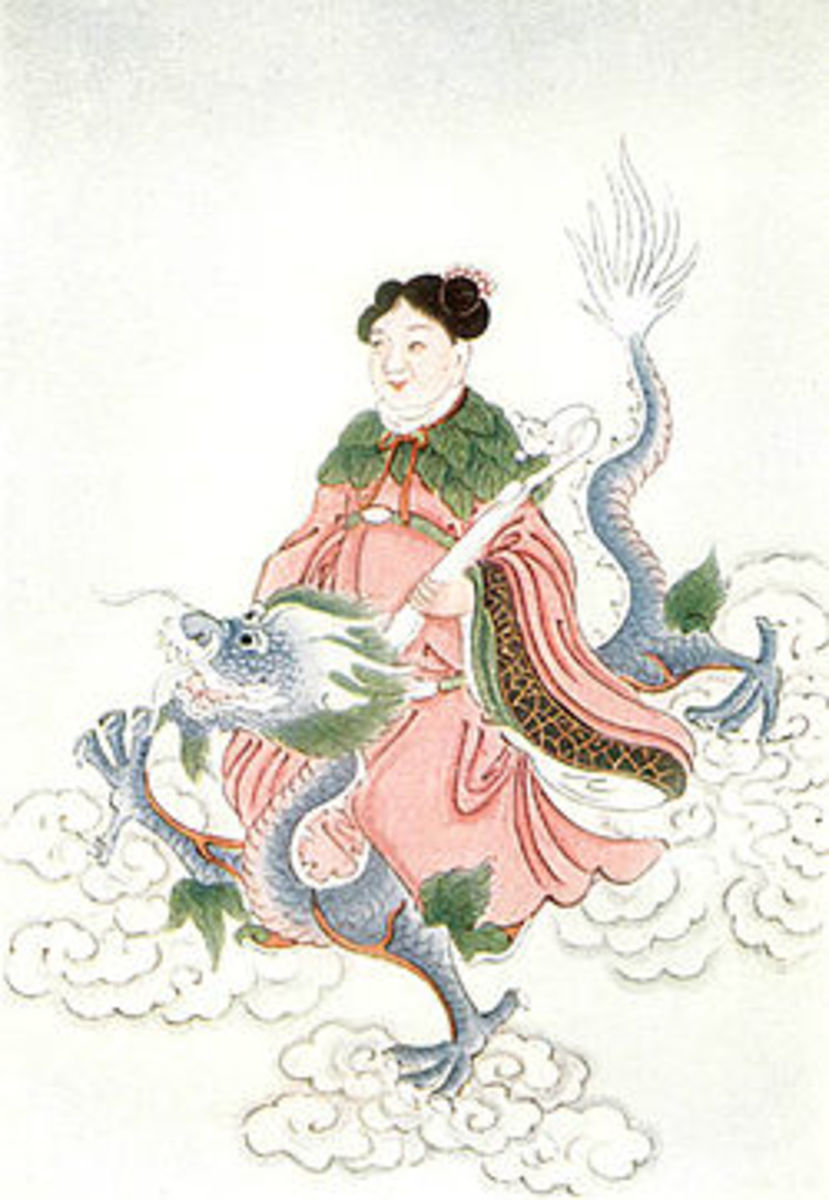Melusina

Melusina is pre-Christian legend, a water spirit, a fairie, a nixie. Melusina inhabits fresh waters and sacred springs. Melusina is the most beautiful woman in the world from the waist up; from the waist down, she's a snake (or sometimes a fish, like a mermaid, or sometimes a dragon, depending on whose coat of arms you're looking at!) In some illustrations, Melusina even has wings!
Melusina is a symbol for feminists. Melusina dates back to a time of pre-Christianity, when women were much more powerful in the world due to the un-masculine ability to give birth, to form new life within their own bodies, an ability that was (before Christ) both respected and feared by men, and many ancient systems were matriarchies. Melusina is also sometimes associated with the sorceries of Druid priestesses, who may call her from their sacred waters to aid and assist them in their rites.
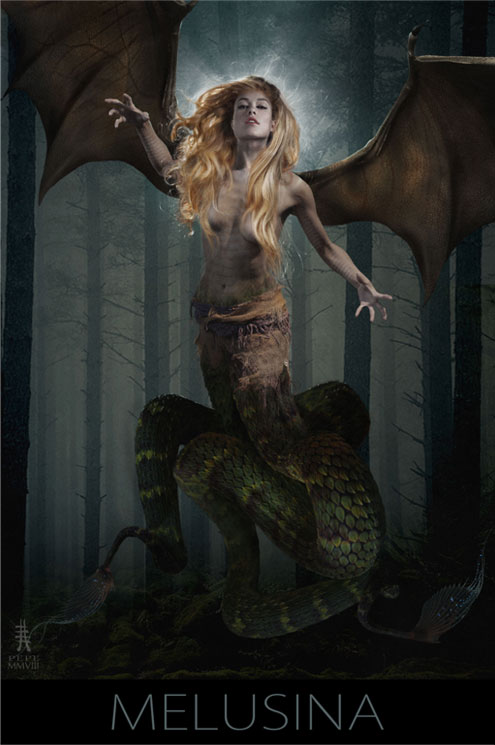
In medieval times, Jean d'Arras collected "spinning yarns", or stories women told while at their spinning wheels. One of the stories was that of Melusina, and it goes something like this:
One day, Elynas, King of Albany (the old name for Scotland) went riding in the woods where he came across a beautiful lady. She was Pressyne, and it was love at first sight for the king. He persuaded her to marry him, but she made him one condition: he must not enter her room while she bathes.
She, in the fullness of time, became enceinte. The king adored her. He showered her with gifts and made every effort to ensure the safety of her lying-in. He spared no expense. She gave birth to triplets; three daughters: Melusina, Melior, and Palatyne.
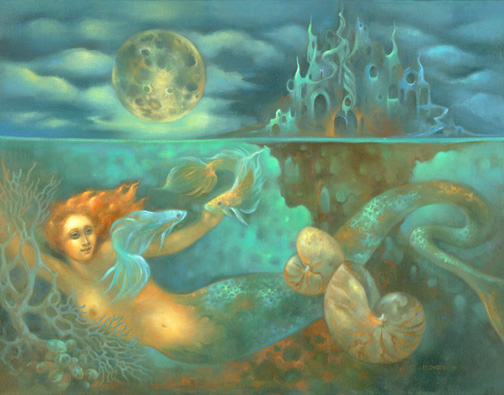
One Saturday, Pressyne was in her bath, luxuriating in the foamy scented water. The king, who had been riding out with the hunt, wished to bathe, and wasn't aware of the presence of Pressyne in the bath. (Or was he? Was he long tormented by a fatal curiosity engendered by the strange taboo? Did he hear faintly, through the door, the enchanted singing of his lovely wife in her bath, and find the temptation irresistible?)
He entered the room. Pressyne shrieked in fury, and rose up from the bath in all her terrible majesty of wrath. She was transformed in the bath; her nether quarters were that of a long, hideous snake! She hissed curses down upon her hapless husband's head and fled the kingdom, together with her three daughters, who were growing into fine and beautiful princesses.
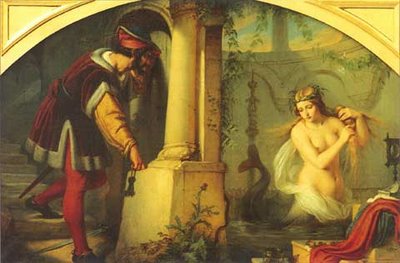
Pressyne fled to the lost Isle of Avalon. The three daughters--Melusina, Melior and Palatyne, came of age in Avalon. On their fifteenth birthday, Melusina, the first-born of the three, asked, "Where is our Father?"
Pressyne told Melusina of the king's broken promise; how he had seen her in her bath.
Melusina was angry at the broken promise, which had spoiled their future as princesses. She instigated a plot, involving her sisters, and successfully captured her father and locked him and all his wealth and power inside a mountain. Melusina tasted the fine wine of revenge.
Pressyne learned of this retribution and was fearsome in her wrath against her first-born daughter Melusina. Pressyne felt it was not Melusina's place to exact revenge for a broken promise made to another; also, maybe she truly loved her kingly husband and would not, after all, wish him harm. Pressyne, in her anger, cursed her daughter Melusina to take the form of a serpent, from the waist down, every Saturday in her bath.
Melusina wandered away from her mother, far and wide, throughout the lost Isle of Avalon, and beyond the seas. She met Raymond of Poitou in a forest in what is now France. They fell in love, and just as her mother had done, Melusina laid a condition on Raymond that he must not see her in her bath.
History repeated itself--Raymond DID see Melusina in her bath, but she forgave him, and, assuming the form of a dragon, gave him three magic rings, and flew away, never to be seen again.


